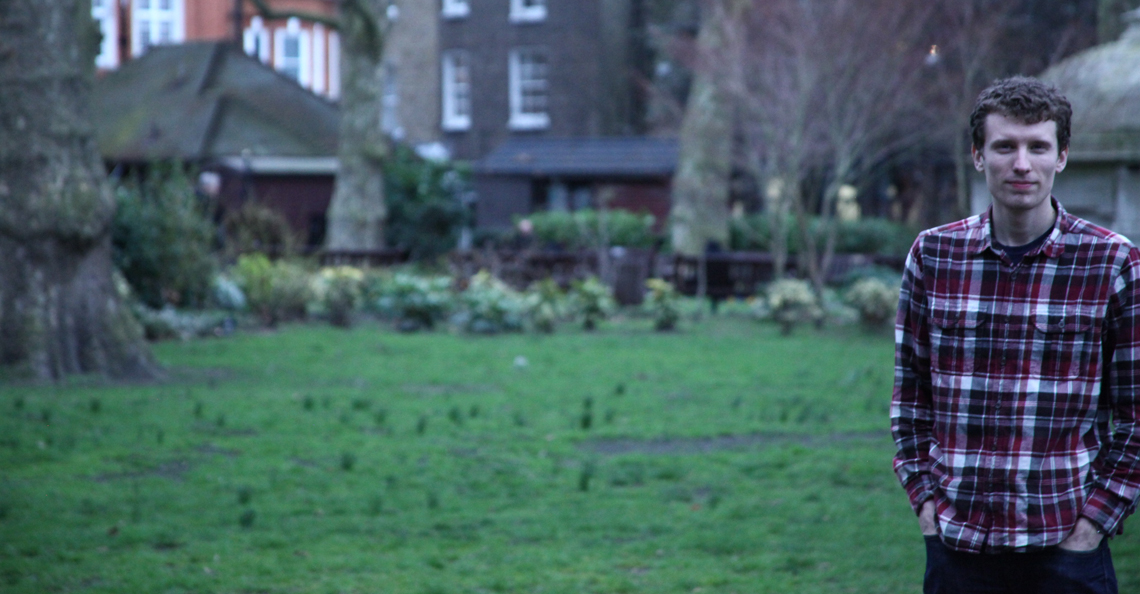Composer Robert Laidlow to research AI-assisted composition
Composer Robert Laidlow will research AI-assisted composition as PRiSM’s first doctoral student, in association with the BBC Philharmonic.
July 2018
We are delighted that composer Robert Laidlow will be joining the PRiSM team at the RNCM in September as our first doctoral student in association with the BBC Philharmonic. Funded by the National Productivity Investment Fund as part of the AHRC North West Consortium Doctoral Training Partnership, Robert’s research will focus on AI-assisted composition.
Robert said: ‘I am thrilled to begin working with the PRiSM team and the BBC Philharmonic on this PhD. AI is an extremely important area of innovation in every area of modern life and I am looking forward to exploring its musical possibilities. The research will create new, highly intuitive, tools to assist myself (and other interested musicians) at different points during the compositional process. An AI might, for example, learn from a selection of my own music and produce its own original material in that style – allowing a composer to effectively collaborate with themselves during the resulting composition.
Improvisation often features in my music, due to my background as a jazz performer, which will provide an engaging counterpart to AI processes: both result in music that is not fully created by the composer alone. Breaking this kind of ground with support from the PRiSM research staff is extremely exciting, and I couldn’t ask for a better group of musicians with whom to develop the resultant pieces than the BBC Phil.’
Robert Laidlow’s music is rhythmic and lively, incorporating his background as a jazz saxophonist, and is often inspired by scientific phenomena. His work has been performed in concert and workshop by groups including Ensemble Modern, Milwaukee Symphony and Ballet, the Britten Sinfonia, Psappha, the Berkeley Ensemble, and the Hermes Experiment. Recent commissions include a piano quintet for the Campos do Jordao International Festival, a duet for the Doors Open Festival, Milwaukee, and a work for solo singing violist Katherine Clarke. He studied at Emmanuel College, Cambridge, and at the Royal Academy of Music with David Sawer.
Robert’s doctoral research will be supervised by Professor Emily Howard (RNCM), Professor Marcus du Sautoy (University of Oxford), Professor David De Roure (Oxford e-Research Centre) and Simon Webb (BBC Philharmonic).
Professor Emily Howard said: ‘It’s very exciting to be welcoming Rob to the RNCM and PRiSM as part of a unique collaboration that feels so strongly aligned with PRiSM’s interdisciplinary ethos. The research focus on AI and musical composition is of particular interest to me, and all the more so because it will involve collaboration with an orchestra. We’re all thrilled to be working with the BBC Philharmonic in this increasingly important research area.’
Professor Marcus du Sautoy: ‘New innovations in AI and machine learning are really pushing the boundaries of what it might be possible for a machine to achieve. But I have been really intrigued in the research I’ve been doing for a new book I’m writing about whether the new AI can be truly creative or help humans to be more creative. It is great to have the chance to explore this question with Rob through my collaboration with PRiSM.’
Professor David De Roure: ‘There is a long history of experimentation in AI and music, and significant recent advances enable us to work in new ways. I’m really looking forward to seeing how this new AI capability can be used creatively in composition, as well as what we learn about AI and our relationship with it. I especially warmly welcome our first PhD student to our interdisciplinary PRiSM team – we have an exciting journey ahead.’
Simon Webb: ‘The BBC Philharmonic has for the last few years been investing in exploring how current and future generations will engage with orchestral music as listeners, performers and creators. Our partnerships with BBC Research & Development, with the RNCM and with PRiSM are fundamental to this area of our work. Researching how composers can work with Artificial Intelligence is a new area for us and we look forward to welcoming Rob Laidlow to Manchester and to the BBC Philharmonic to develop his work in this important field.’


